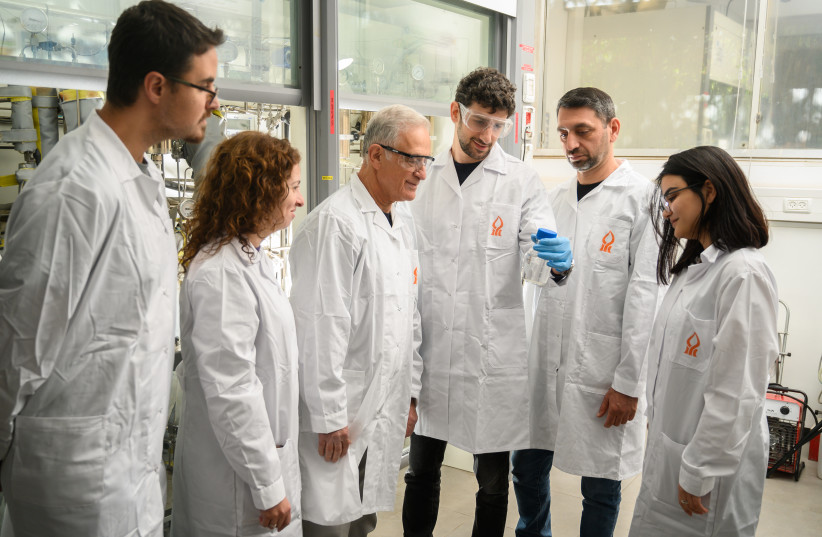Passenger and military jets produce a tremendous amount of pollution above the Earth. Countries can’t stop air traffic, but somehow, intense efforts must be invested in cleaning the atmosphere to slow climate change.
Ben-Gurion University of the Negev’s technology-transfer company, BGN Technology representing the Blechner Center for Industrial Catalysis and Process Development at the university’s campus in Beersheba, and the Ralco Group have joined together in a “groundbreaking” joint venture. The quest for cleaner skies takes flight with the establishment of CarboNGV, a groundbreaking joint venture represented by BGN Technologies, the tech transfer company of Ben-Gurion University, and The Ralco Group.
This dynamic duo is poised to revolutionize the aviation industry with a novel method for producing Sustainable Aviation Fuel (SAF), a critical weapon in the fight against climate change.
The Ralco Group, through its investment arm and as a part of its strategy to lead strategic initiatives in the synthetic fuel arena, is injecting $2.4 million into this venture, propelling a decade-long research project to new heights. The team’s intensive efforts have yielded a promising technology capable of producing SAF, and CarboNGV is ready to translate this potential into a tangible reality. By 2025, the first demonstration plant is expected to become operational, churning out SAF and paving the way for a more sustainable future for air travel.
SAF is the aviation industry’s hero, slashing carbon emissions and aligning with the ambitious goal of achieving net zero by 2050. The European Commission is leading the charge with its “Fit for 55” legislative package that includes a blending mandate for aviation fuel suppliers. This mandate will become effective in 2025, starting with a modest 2% SAF blend, gradually ascending to a commanding 70% by 2050.

Urgent need to tackle environmental changes
For Israel, reaching these lofty targets requires local forces like CarboNGV, the companies said. The government has recognized the urgency of the situation and recognized the immense importance of promoting such innovations; the Ralco Group then seized the momentum.
CarboNGV holds the key to a modern-day transformation. Its simple application unlocks a universe of possibilities across industries, transforming a vast array of materials and feedstock into synthetic fuel. Its adaptable technology embraces the diversity of waste streams, breathing new life into countless materials across industries, and converting much more waste into greener products while slashing carbon emissions.
The skies above are no longer the limit for BGN Technologies, Ralco Group, and CarboNGV. With each drop of SAF produced by CarboNGV, the world is closer to a reality in which air travel soars in harmony with the environment.
Shirley Sheffer Hoffman, senior vice-president for business development-climate tech at BGN, commented: “We are very happy to have the opportunity to work with Ralco Group to bring a strategically crucial, green solution to market.”
Arie Sussely, the CEO of CarboNGV, added: “For me, CarboNGV is more than a business; it’s a national mission. After more than two decades of serving my country behind the scenes, I am proud to be at the forefront of this critical endeavor. We are aiming to make Israel a leader in sustainable aviation solutions and turn it into a take-off nation, which is more important now than ever. At CarboNGV, we believe the sky is not the limit.”
Blechner Center director Prof. Moti Herskowitz concluded that he was “confident that the advanced, patent-backed technology developed at our center, combined with the excellent business platform provided by CarboNGV, will yield a process to be implemented worldwide.”
The Environment and Climate Change portal is produced in cooperation with the Goldman Sonnenfeldt School of Sustainability and Climate Change at Ben-Gurion University of the Negev. The Jerusalem Post maintains all editorial decisions related to the content.
